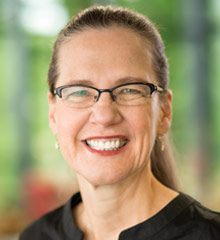Commentary on 2 Corinthians 5:6-10 [11-13] 14-17
What gives us the courage to do the right thing—to act on what our conscience calls us to do—when we know that we often will not be rewarded for it in this life?
Can we boldly defend the common good in the face of powerful detractors concerned solely with their own interests and agendas? And when we do speak the truth about what needs to be done in specific circumstances, can we do so with the love and forgiveness needed to bring about the justice we are calling for? These are some of the larger questions Paul grapples with in 2 Corinthians that provide a context for interpreting this passage.
The logic of double-negation
In 2 Corinthians 5:6–10, Paul asserts that we can be confident in all circumstances, whether we are “at home” or “away” from either “the body” or “the Lord.” This theme resonates with his refrains in Philippians that “living is Christ and dying is gain” (Philippians 1:21) and that in any and all circumstances—whether in plenty or in need—we can do all things through Christ, who strengthens us (Philippians 4:12–13).
There is a logic of double-negation at work in these verses that runs throughout Paul’s letters. This logic brings to the fore the point that God’s “yes”—God’s promise, which we receive in Jesus through the Spirit—is far greater than all our human distinctions and circumstances (2 Corinthians 1:18–22). In Galatians, for example, Paul states that through the Spirit we eagerly await the “hope of righteousness” because “in Christ Jesus neither circumcision nor uncircumcision counts for anything”; all that counts is “faith working through love” (Galatians 5:5–6). In 1 Corinthians, he makes clear that the foolishness and weakness of the cross of Christ embody the fact that God’s foolishness is wiser than human wisdom, and God’s weakness is stronger than human strength (1 Corinthians 1:18–25; my emphasis).
As depicted in the great hymn of Romans 8, Paul’s point with these negations is to affirm that nothing—neither death nor life; not angels, rulers, or powers; not height or depth, nor anything else in all creation—can separate us from God’s love in Christ Jesus our Lord (Romans 8:38–39). The love of God encompasses everything in reality. Grounded in God’s love through Christ’s grace and the Holy Spirit’s communion, we can be what we have been called to be: an open statement of truth, commending ourselves with confidence to everyone’s conscience before God, regardless of our circumstances (2 Corinthians 4:2; 13:13).
Being at home or away from the body
Is Paul not introducing yet another dualism—another distinction—with his talk about being “at home” or “away” from “the body” or “the Lord”? We can gain some insight on this question by taking a look at his “fool’s speech” regarding the “super-apostles” who have defamed him and abused the Corinthians with their deceptive misuse of spiritual power.
In that speech Paul refers to “visions and revelations” he experienced 14 years prior, saying that he does not know whether they were “in the body or out of the body” (2 Corinthians 12:1–7). Paul himself has had such visions and revelations, which may indeed have been “out of the body” experiences. In these kinds of experiences we may have a powerful sense of union with God or sense of being “at home” with the Lord. Yet Paul is very clear: those experiences are no more sacred—no more weighted with authority—than others.
Why? Because the only power and authority we can ultimately rely on is the sufficiency of God’s grace. Through that grace, power is “made perfect [teleitai, better translated as “reaches full maturity”] in weakness.” Indeed, our ultimate criterion is the weakness of Jesus’ suffering body undergoing all of our vicissitudes, even to the point of death on a cross (2 Corinthians 12:8; cf. Philippians 2:8).
Walking by faith, not sight
In fact, all that we do in our bodies will be manifest (phanerothenai) before “the judgment seat of Christ”—the eschatological place and time where and when Christ will judge all the living and the dead (2 Corinthians 5:10; Romans 2:16, 14:9–10). This reference to Christ’s “judgment seat” is not a threat but a promise. Although we live in a world where technical savvy, wealth, and power seem continually to trump God’s steadfast love, justice, and righteousness, we can be confident that the latter—described as God’s mercies and consolation in 2 Corinthians—will prevail in the end (2 Corinthians 1:3; cf. Jeremiah 9:23–24).
Thus Paul’s phrase “we walk by faith, not sight” fleshes out his earlier discussion of “seeing” the glory of Christ and “being transformed” into the same image (2 Corinthians 3:18). Our “seeing” and “being transformed” into Christ’s image take place not in some ethereal experience but in every aspect of our lives where we need to rely on, or put our trust in, God’s grace. Wherever we are, we are accountable to God—and thus also to one another—for what we do in our bodies, whether good or evil. And God’s grace is sufficient to give us the power to please God in all circumstances.
So being in “ecstasy” (eksestemen, taken out of ourselves) before God does not immune us from being accountable for what we do with our bodies (2 Corinthians 5:13). Rather, knowing the fear of the Lord—that we are ultimately accountable to God and not to any other power—frees us to speak the truth and to persuade others to do the same. Well-known to God, we can confidently make ourselves known to others, even as we persuade them to reciprocate by living in the same confidence and sincerity (2 Corinthians 5:11–13).
Grounded in God’s love, we can speak truth to one another—we can risk sincerity—even when we disagree or might be wrong. God is reconciling the entire world through Christ, in spite of anything we or others have done (2 Corinthians 5:19): God’s promises are always a “yes.” Rooted in that “yes,” our lives can be an open statement of truth—regardless of where we find ourselves (2 Corinthians 1:20–22).


June 14, 2015